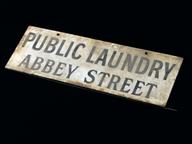

Oxygen analyser
- Made:
- 2020 in United Kingdom, Lithuania and China
Oxygen analyser, serial number 18437-0404B, to help monitor the flow of oxygen a collaboration between Thanos Medical, Life Racing and UCL (University College London) Institute of Healthcare Engineering, including packaging, 15 page instruction manual (version 2.2, first printed 10 June 2020), power supply model UE24LCP-1202008PA by Dongguan Shilong Fuhua Electronics Co., Ltd, two plastic stoppers, gas monitoring line made by Intersurgical, in Lithuania, made April 2020, expiry date April 2025, reference number 2734000, lot number 32053107, developed as part of the UCL Ventura CPAP Flow Generator, 2020
The UCL Ventura CPAP consists of three parts - the system flow generator, disposable circuit including tubing and an oxygen mask and a reusable oxygen analyser. As the world faced challenges of supply and demand the UCL team developed their own devices from scratch. A lambda sensor from a car’s exhaust (which adjusts the fuel amount that is sent to the engine cylinders by optimizing the air and fuel mixture) was adapted. In collaboration with UK based Thanos Medical, their device was given MHRA (Medicines and Healthcare products Regulatory Agency) approval on 6 June 2020.
During the first wave of the COVID-19, opinion was split on which was the best technique to help people with COVID-19 in hospital breathe. Information from Italy and China through Prof Meryn Singer recommended Continuous Positive Airway Pressure (CPAP). CPAP (Continuous positive airway pressure) pushes a steady flow of air oxygen into a person’s nose and mouth either through an oxygen mask or oxygen hood. However, only 12 stand alone CPAP devices were available across UCLH Trust. To help meet demand, a multidisciplinary team led by Professor Rebecca Shipley and Professor Tim Baker reverse engineered and improved an off patent device called Respironics WhisperFlow®. The UCL and UCLH team consisted of Singer, Prof David Lomas, Dr Tom Peach, Dr Tom Rushton, and Mr Peter Weston.
Alongside colleagues, Andy Cowell, Ben Hodgkinson and Pierre Godof, from Mercedes-AMG High Performance Powertrains, the team took fewer than 100 hours from their initial meeting producing their first prototype. Ten days after their first meeting, the Mark I Ventura had regulatory approval from MHRA (Medicines and Healthcare products Regulatory Agency).
The team had to work in a bubble due to COVID-19 restrictions, often moving into hotels to protect their loved ones and colleagues, spending weeks away from home. For their work, the team were awarded the Royal Academy of Engineering’s President’s Special Award for Pandemic Services in 2021. Rebecca Shipley was awarded an OBE and Tim Baker a MBE for their work.
Details
- Category:
- Public Health & Hygiene
- Object Number:
- 2022-191
- Measurements:
-
overall (device): 137 mm x 84 mm x 50 mm,
overall (box): 74 mm x 290 mm x 214 mm,
- type:
- oxygen analyser




